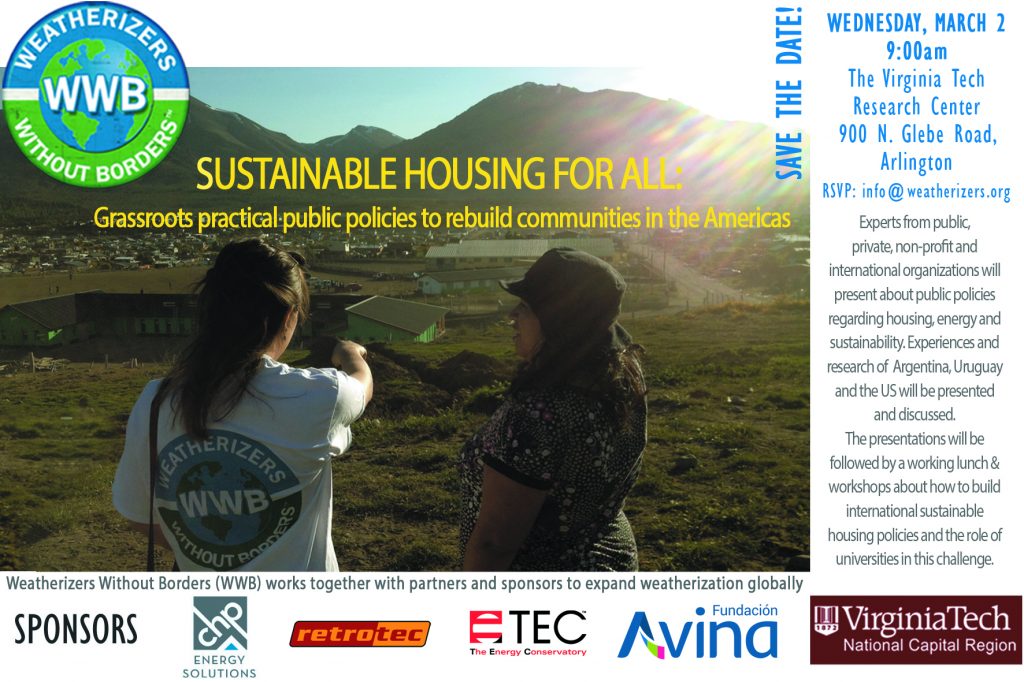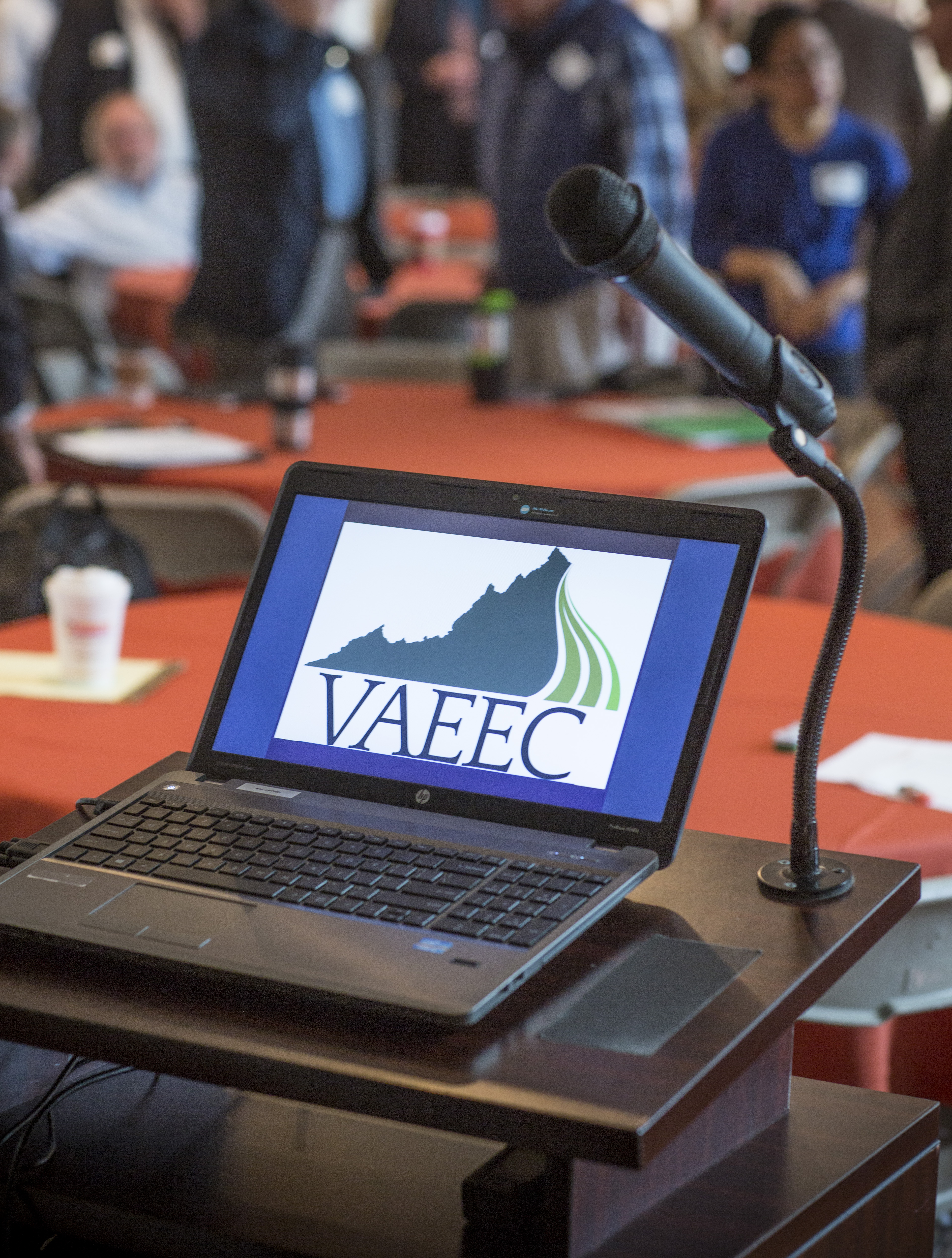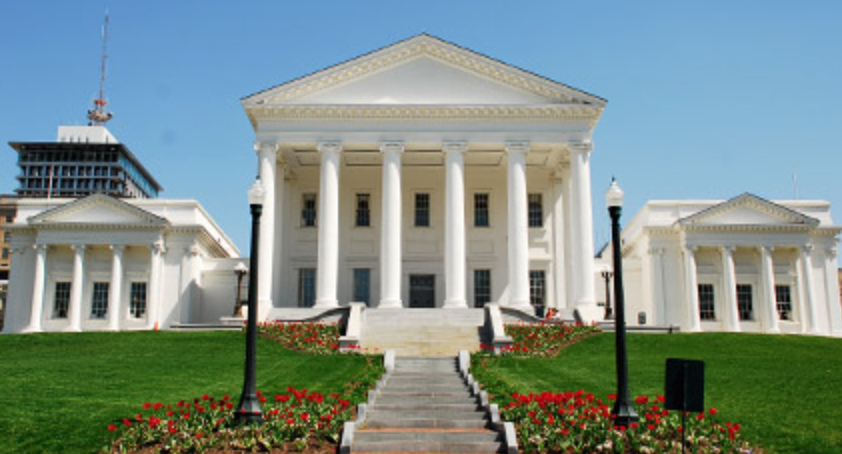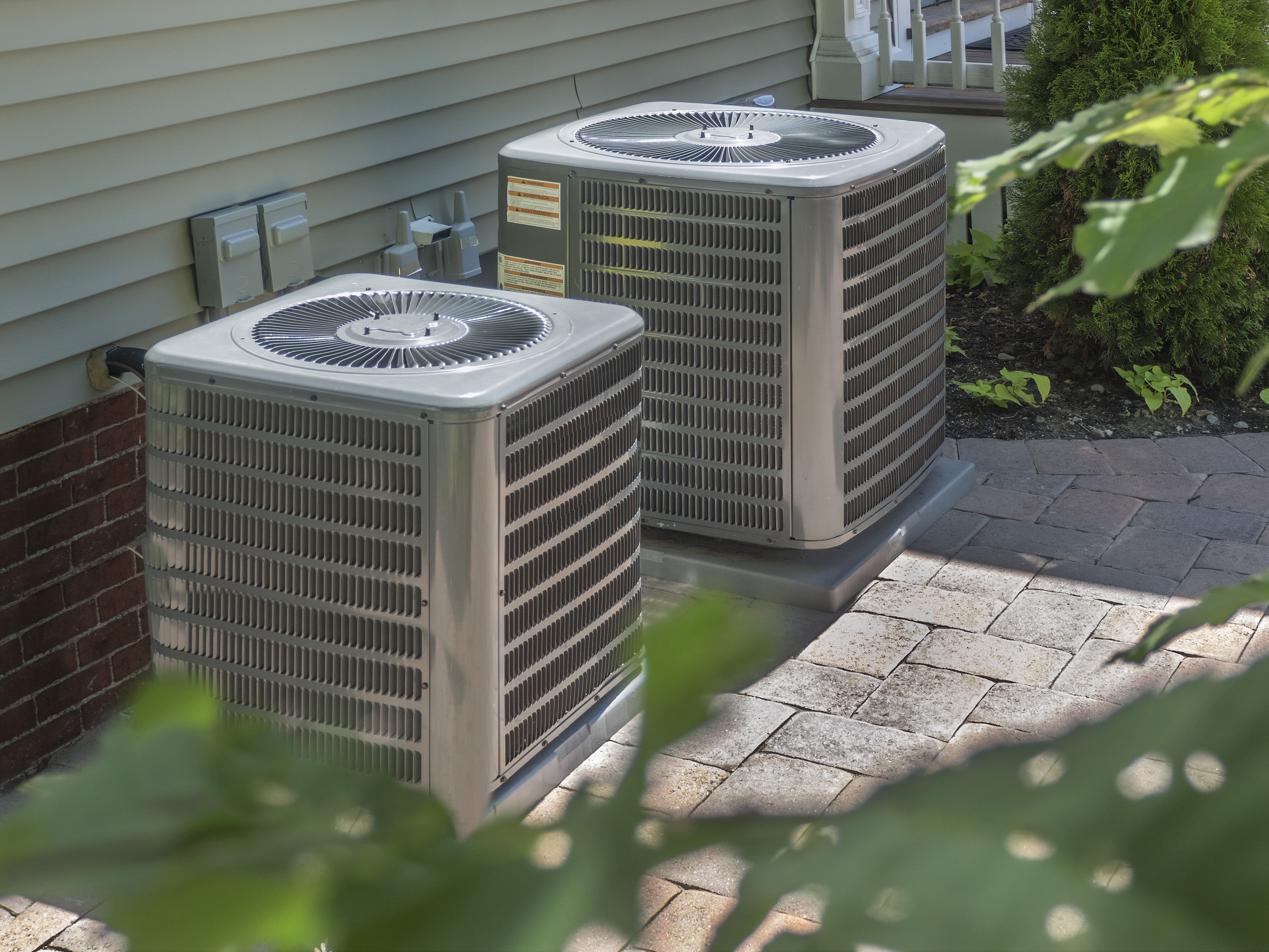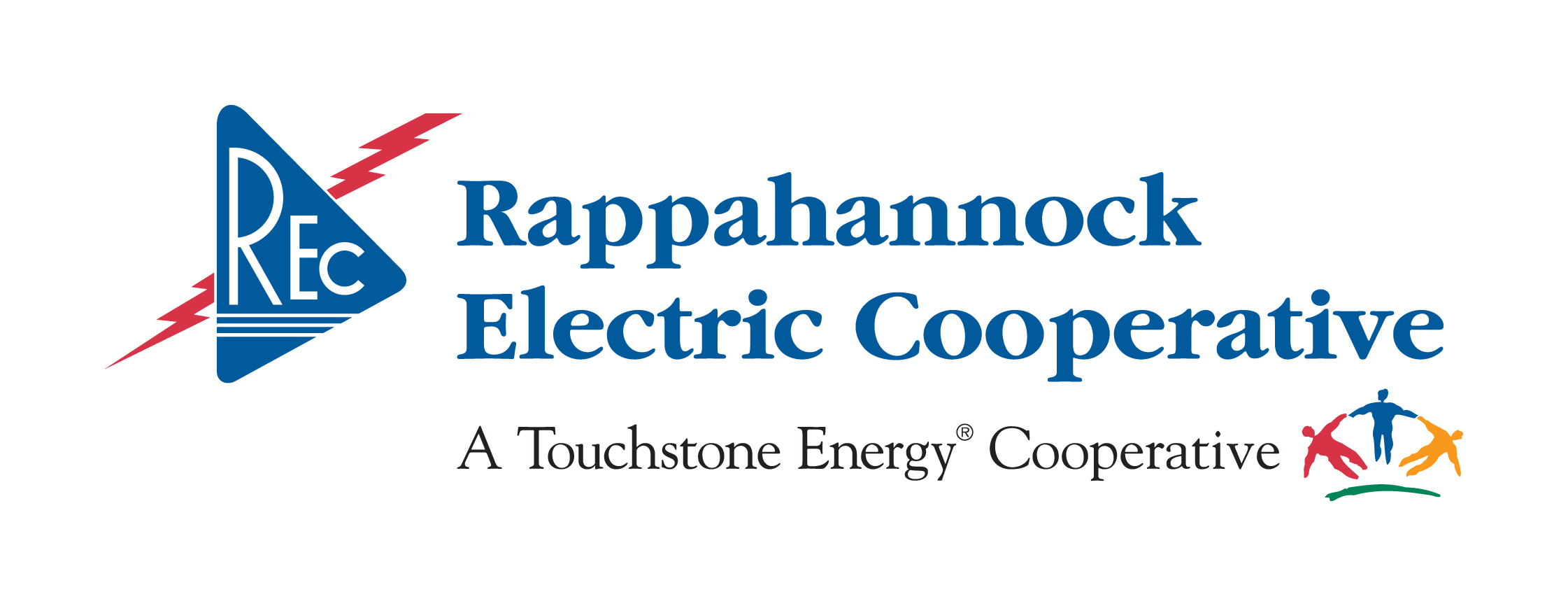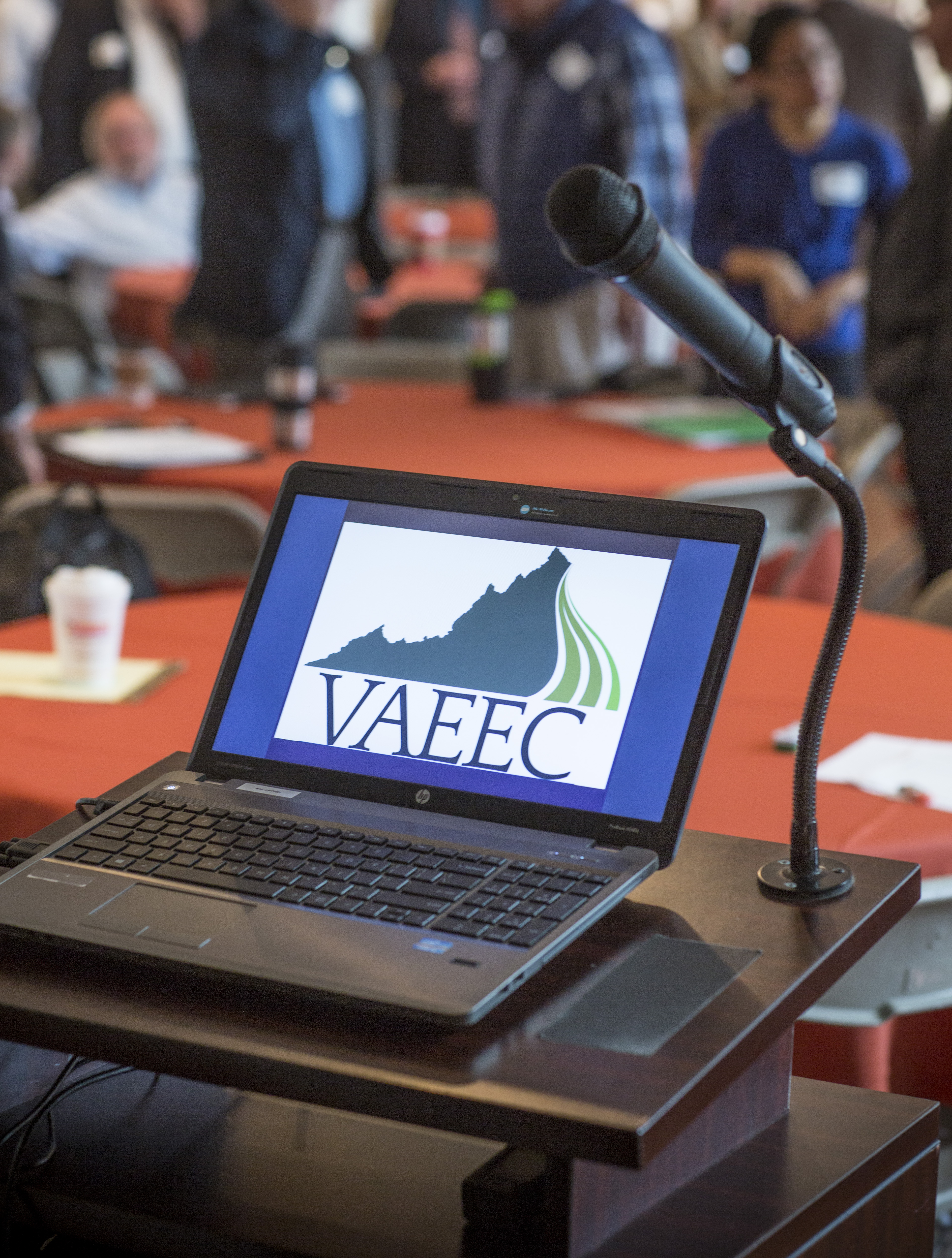Thank you to everyone who took part in our survey in February — 50 members and stakeholders shared invaluable feedback on VAEEC’s benefits, structure and priorities. The Governance Board and the Membership Committee have reviewed the results and are factoring in all of the feedback into a review of the organization’s focus, services and membership structure.
Here are some of the key takeaways from our 2016 survey:
- The majority of stakeholders (58%) hear about the VAEEC through email/e-newsletters. Most members (48%) heard about VAEEC through colleagues, another 25% through email/e-newsletters. If you want to be added to our email list, email us at info@vaeec.org.
- A high number of members and stakeholders said energy efficiency is “very important” to their work, with an additional 35% of members and 22% of stakeholders saying it was “important.”
- When asked how they currently engage, 87% of members and 47% of stakeholders say they try to attend both spring and fall meetings (we’ve got another one coming up so be sure to register!), and 87% of members and 82% of stakeholders say they read the e-newsletters. An additional 45% of members encourage colleagues to join, and 35% of members say they participate in working groups as invited.
- The benefits (“Networking at meetings,” “Staying up to date on the latest trends, innovations and policies to inform my job/help grow my business,” “Learning more about the industry,” “Being recognized as a supporter of the VAEEC’s mission,” and “Being part of a body that is driving ee policy/Influence the industry through policy or regulation”) were almost all rated “valuable” in both groups with the latter ranking slightly higher than the others.
- When asked to rate the likelihood they would take advantage of specific offerings in the future, the most popular were members-only events like policy briefings and trainings and monthly webinars. The next most popular was regional happy hours. We’ve already teamed up with Green Drinks to offer that option in Arlington on April 21 and in Richmond in May and are tentatively planning to kick off a webinar series in June.
Great perspectives! We welcome your honest feedback at any time. You can email us at info@vaeec.org.
VAEEC Members Encouraged to Apply, Suggest Nominees, and Offer Support
March 2016: Virginia’s Board of Housing and Community Development will be filling five seats this spring and summer. VAEEC would like to see a strong number of diverse nominations representing the energy efficiency industry.
Why is this important to VAEEC?
Members of the governor-appointed Housing and Community Development Board guide and vote upon the content of Virginia’s triennial update of building codes – including the energy efficiency code. Currently Virginia lags behind our neighbors to the north and south for requiring some of the advancements in efficiency standards and testing. Advanced energy codes are among the most cost-effective methods of saving energy, lowering the total cost of housing, improving health and comfort in homes, and improving quality throughout the homebuilding industry. Learn more about the importance of strong energy codes from the U.S. Department of Energy and the Responsible Energy Codes Alliance.
What can you do?
Please reach out to me at chelsea@vaeec.org if you’d like to be nominated or can suggest a candidate worthy of support.
The seats will be filled by July 1, but the administration is expected to identify candidates soon.
The open seats are in Virginia’s 3rd, 4th, 5th, 7th, and 9th congressional districts, and nominees have to reside in the district to be eligible:
3rd (Bobby Scott’s district- parts of Richmond, Henrico, parts of Tidewater)
4th (Randy Forbes’s district- being redrawn) South-central to South eastern part of VA (Chesterfield, Amelia, Hopewell, Southampton, etc.)
5th (Robert Hurt’s district) Albemarle, Appomattox, Bedford, Charlottesville, Fauquier, etc)
7th (Dave Brat’s district) Ashland, parts of Richmond, Spotsylvania
9th (Morgan Griffith’s district) Southwest, Southside
Learn more about the Board and the nomination process.
VAEEC is official supporting the following candidates. To show your support for these or other nominees, simply fill out a nomination form online. It is listed as “Housing and Community Development, Board of” under “Commerce and Trade.”
3rd District: Andrew Grigsby, Executive Director of the Local Energy Alliance Program and Secretary of the VAEEC Governance Board
7th District: Bob Newman, President & CEO of the Virginia Community Development Corporation
7th District: Tim Bernadowski, Senior Energy Engineer, Siemens Building Technologies
VAEEC 2016 Letter to State Corporation Commission in support of Washington Gas Light Company’s energy efficiency programs.
Chelsea Harnish, Executive Director
Virginia Energy Efficiency Council
March 8, 2016
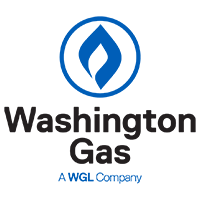
On behalf of the Virginia Energy Efficiency Council, I am pleased to submit comments in support of the application by Washington Gas Light Company (“WGL”) to amend its Conservation and Ratemaking Efficiency Plan (“CARE”) under Case No. PUE-2015-00138.
WGL’s CARE program has provided Virginia ratepayers with cost-effective energy efficiency programs since its inception in 2010. WGL’s proposed amendment to its CARE Plan for 2016-2018 will offer expanded energy efficiency opportunities that will result in real benefits to Virginia residents. With projected lifetime savings of over 15.6 million therms, the proposed energy efficiency programs will not only provide economic and environmental benefits, but will give consumers greater awareness and ability to manage their energy usage, which will lead to increased implementation of energy efficiency technologies and practices all while lowering their utility bills.
We are encouraged by WGL’s innovative portfolio of residential programs, which are designed to reach a broader base of customers across the Commonwealth, including a residential equipment program, online audits, low-income audits and weatherization. In addition, WGL is proposing an expanded home energy reporting program that will provide residents with actionable information and personalized tips for reducing gas usage, while also cross-promoting and connecting residents with the other programs available to them. WGL’s approach to its residential efficiency programs will result in greater customer education and engagement that will deliver measurable and verifiable benefits across a broad and diverse set of its customers.
Please accept this letter of support for WGL’s amendment application for its CARE Plan. I sincerely hope the Commission approves the amended CARE Plan as a prudent use of ratepayer funds. If you have any questions, please contact me.
March 2016 Testimony of Chelsea Harnish to the SCC
Virginia State Corporation Commission
March 8, 2016
Good morning members of the Commission. My name is Chelsea Harnish and I am the executive director of the Virginia Energy Efficiency Council (VAEEC). The VAEEC is a broad coalition that works to assess and support programs, innovation, best practices and policies that advance energy efficiency in Virginia while providing a forum for stakeholder interaction. Before joining the VAEEC, I was the energy campaigns manager for the Virginia Conservation Network.
My working experience has given me an acute awareness and understanding of the energy and conservation challenges the Commonwealth faces, and I am here to support Dominion’s efforts.
The lowest cost electricity is the electricity consumers don’t use. Energy efficiency programs help consumers reduce their consumption, thereby providing a cost-effective energy source.
These utility programs will also help the commonwealth meet its voluntary goal of reducing retail electricity consumption by 10 percent by 2020.
For residents, there is great value in Dominion’s proposed Residential Programmable Thermostat Program. In addition to the rebate customers will receive for the purchase and installation of the WiFi thermostat, the most beneficial takeaway is the usage data that will provide useful information back to consumers about their consumption patterns, including volume and peak usage times, which can in turn inform smarter consumer decisions.
Extending the expiring Air Conditioning Cycling Program, which pays participants $40 a year to agree to have their air conditioning units cycle during peak summer days, is also imperative for Virginia. While I don’t have stats on the success of the program, I do know that having consumers cycle their air conditioning during peak demand is one way our utilities’ providers can help manage through high peak periods.
On the business side, the Small Business Improvement Program will be an important addition to Dominion’s efficiency portfolio because it focuses on a market that is traditionally difficult to reach through efficiency programs. The program will allow participating businesses to update aging energy systems with more cost-efficient versions at a fraction of the cost. Updating infrastructure will allow businesses to save money by operating more efficiently and potentially allow them to reinvest those savings to grow their business.
On behalf of the Virginia Energy Efficiency Council, I sincerely appreciate the opportunity to support these practical yet meaningful energy efficiency programs. The proposed programs are worthy of endorsement and I hope we can all experience the benefits of increased energy efficiency throughout the Commonwealth of Virginia. Thank you for your consideration regarding this matter.
March 2016
Featured Member of the Month: Rappahannock Electric Cooperative (REC)
Business Gold Member
 Rappahannock Electric Cooperative (REC) serves more than 160,000 homes and businesses across its 22-county service area, which stretches from the West Virginia border in Clarke County south to near Charlottesville and east to West Point. As a not-for-profit, consumer-owned utility, REC is committed to providing value to its members. While reliable and affordable electricity is the foundation of REC’s mission, support to local communities, consideration of the environment, and service to its members complete REC’s value equation.
Rappahannock Electric Cooperative (REC) serves more than 160,000 homes and businesses across its 22-county service area, which stretches from the West Virginia border in Clarke County south to near Charlottesville and east to West Point. As a not-for-profit, consumer-owned utility, REC is committed to providing value to its members. While reliable and affordable electricity is the foundation of REC’s mission, support to local communities, consideration of the environment, and service to its members complete REC’s value equation.
“REC’s Core Values are Caring, Integrity, Respect, and Service,” says David Koogler, REC vice president of member and external relations (and VAEEC Governance Board member). “Adhering to those values means more than just selling electricity. We want our members to use electricity efficiently. Wise and efficient use of electricity helps consumers receive more value for their energy dollars, results in more satisfied consumers, and conserves natural resources,” explains Koogler.
The Cooperative encourages and facilitates energy efficiency through multiple communication channels, including social media, traditional advertising, Cooperative Living – a very popular magazine exclusively provided to its members, bill messages, well versed agents in its contact center, numerous online options, and phone and on-site energy consultations. An excellent example of the variety of REC Efficiency Programs and advice is found in the pages of the current issue of Cooperative Living.
 REC recognizes that the first step toward efficient use of electricity is to increase awareness of energy use. An innovative program called myusage.com helps create that awareness. Members enrolled in the myusage service can receive daily usage information via email or alerts when usage exceeds preset boundaries. The program overlays weather information to help explain why usage varies from day-to-day. If daily usage increases without a corresponding change in weather, the consumer is alerted to potential problems, such as a heat pump operating in the emergency mode, and can take corrective actions sooner, before receiving an unusually high monthly bill.
REC recognizes that the first step toward efficient use of electricity is to increase awareness of energy use. An innovative program called myusage.com helps create that awareness. Members enrolled in the myusage service can receive daily usage information via email or alerts when usage exceeds preset boundaries. The program overlays weather information to help explain why usage varies from day-to-day. If daily usage increases without a corresponding change in weather, the consumer is alerted to potential problems, such as a heat pump operating in the emergency mode, and can take corrective actions sooner, before receiving an unusually high monthly bill.
Visit the Energy Center at myrec.coop to learn more about the myusage service and REC’s other efficiency programs.
By: Chelsea Harnish, VAEEC Executive Director
The 2016 Virginia General Assembly session has come to a close. You can see our previous updates here and here.
The good news is that SB 395 and HB 1053 have been signed by the Governor. As a reminder, here is the summary we shared previously: Removes the lost revenue recovery provision for utility EE programs and adds in a performance incentive based on levelized costs of energy savings (1% of costs returned if energy savings below 6 cents per kilowatt hour; 2% below 5 cents per kilowatt hour; 3% below 4 cents per kilowatt hour; 4% below 3 cents per kilowatt hour) Download the 1053/395 fact sheet.
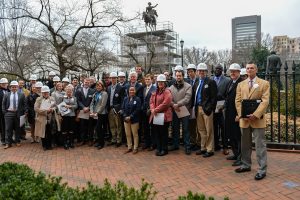
Thanks to everyone who came out for Clean Energy Day 2016
As a result of this new law, by the end of 2016 the State Corporation Commission (SCC) will issue a report on EM+V protocols. VAEEC plans to submit comments to the SCC about this important issue and will keep you posted as we learn more about the process.
Now on to the bad news… in a last minute upset, the Senate Commerce and Labor committee killed Del. Sullivan’s HB 1174, which would have required DMME to issue an annual progress report on where the Commonwealth stands in meeting the 10% by 2020 voluntary goal. We are disappointed in this turn of events, but we hope to work with the patron next year to re-introduce this legislation.
We hope that you were able to join us last week at Clean Energy Lobby Day. It was great to see so many familiar faces in the building talking with their legislators about the importance of energy efficiency!
 This week brings us to the halfway mark- or “crossover”- for the 2016 General Assembly session. All of the energy efficiency bills we are tracking have been heard in their respective committees. Below is a rundown on their statuses. For a summary of each of these bills, check out our legislative tracker.
This week brings us to the halfway mark- or “crossover”- for the 2016 General Assembly session. All of the energy efficiency bills we are tracking have been heard in their respective committees. Below is a rundown on their statuses. For a summary of each of these bills, check out our legislative tracker.
- HB 352 (Del. Ware). At the request of the patron, this bill was carried over until next session.
- HB 1053 (Del. Kilgore). After several deliberations with stakeholders and a robust discussion during the committee hearing, this bill looks very different than the original. The bill directs the SCC to study the potential for establishing uniform EM+V protocols for reporting the impacts of utility energy efficiency programs. This bill narrowly made it out of committee with an 11-to-9 vote.
- HB 1174 (Del. Sullivan). This bill was a late addition to our legislative tracker. After working with the patron and some of our members on slight language modifications, we were able to give this bill our full support. Using a common phrase heard around the General Assembly building, after finding “peace in the valley”, this bill passed out of committee.
- SB 395 (Sen. Alexander). This bill came up in committee on Monday and is the companion bill to HB 1053 (they are the same bill in separate chambers). This bill passed out of committee as well.
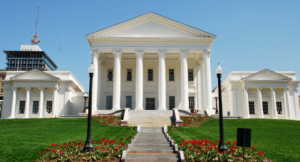 All of the bills above that made it out of committee have also made it out of their respective chamber. Today marks “crossover”, which means that each chamber- house and senate- can only take up bills from the opposite chamber. In essence, we start fresh tracking our bills and testifying on them before their respective committees.
All of the bills above that made it out of committee have also made it out of their respective chamber. Today marks “crossover”, which means that each chamber- house and senate- can only take up bills from the opposite chamber. In essence, we start fresh tracking our bills and testifying on them before their respective committees.
Stay tuned for more updates as the session continues through March 12.
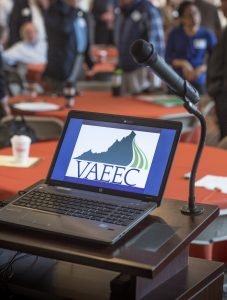 This is your chance to shape the future of the VAEEC. We’re taking stock of our membership structure, the benefits we provide and the ways we communicate — and we need to hear from you.
This is your chance to shape the future of the VAEEC. We’re taking stock of our membership structure, the benefits we provide and the ways we communicate — and we need to hear from you.
Interested in regional happy hours or webinars?
What information and resources that we share provide the most value?
Would you pay to attend our meetings?
Let us know!
Please pencil in some time to answer our short 10-question survey by Friday, March 4.
VAEEC members take this survey.
VAEEC stakeholders take this survey.
Not sure if you’re a member? Check our list.
Governor McAuliffe’s stakeholder group on the Clean Power Plan (CPP) met for the third time on Friday, February 12, and began getting into the details of the choices before us. The McAuliffe Administration and Virginia Dept. of Environmental Quality (DEQ) are moving forward with a Virginia implementation plan despite the recent Supreme Court stay on the EPA regulation targeting greenhouse gases.
Energy efficiency should have a strong role in the Virginia CPP implementation plan. The state has high per-capita electricity use, due to decades of low prices and limited programs for efficiency. The Commonwealth has enormous potential for cost-effective energy efficiency savings. How well the state captures this potential for economic gain will depend in large part on the implementation plan Virginia designs.
Stay tuned for more.
###
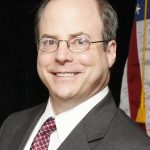 John Morrill is the energy manager for Arlington County. He is on the Governance Board of VAEEC, and he was appointed to the CPP Stakeholder Group on behalf of the Virginia Association of Counties (VACO). John welcomes input from readers: jmorrill@arlingtonva.us
John Morrill is the energy manager for Arlington County. He is on the Governance Board of VAEEC, and he was appointed to the CPP Stakeholder Group on behalf of the Virginia Association of Counties (VACO). John welcomes input from readers: jmorrill@arlingtonva.us
February 2016
Featured Member of the Month: Community Housing Partners (CHP) and their work with Weatherizers Without Borders (WWB)
Business Gold Member
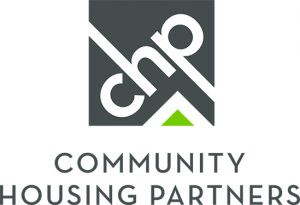 Christiansburg-based Community Housing Partners, or CHP (Business Gold VAEEC member), does incredible work creating and sustaining “communities that promote vitality in neighborhoods, foster wealth-building for individuals, and contribute to a better environment for future generations” through sustainable development, architectural design, construction, homeownership,, housing management, resident services, energy training and research, emergency home repair, and weatherization.
Christiansburg-based Community Housing Partners, or CHP (Business Gold VAEEC member), does incredible work creating and sustaining “communities that promote vitality in neighborhoods, foster wealth-building for individuals, and contribute to a better environment for future generations” through sustainable development, architectural design, construction, homeownership,, housing management, resident services, energy training and research, emergency home repair, and weatherization.
But what’s equally impressive is their work not just outside the Commonwealth but outside the United States. As a founding partner of Weatherizers Without Borders (WWB), CHP works with various global entities to fight energy inefficiency and energy poverty in order to improve the health, safety, comfort, and economy of families across the globe in Central and South American countries. They help introduce programs like the U.S. Department of Energy’s Weatherization Assistance Program as public policies in these regions, and CHP Energy Solutions Research and Training has trained WWB volunteers in both Virginia and Argentina.
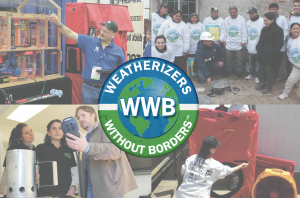 CHP’s Chase Counts is one of several subject experts from the Training Center who have provided training and technical assistance in Buenos Aires, Argentina. “During my three-week stay, we were able to provide hands-on field training to 15 installers, an additional 8 student-volunteers that would continue developing the trainings, and we held a two week building science intensive course at the Instituto Tecnologico Buenos Aires for 25 architects, engineers, utility professionals, professors, and interested students,” explains Chase, “There is a strong interest and demand for weatherization work that extends beyond saving energy to also include improving quality of life and making households healthier.”
CHP’s Chase Counts is one of several subject experts from the Training Center who have provided training and technical assistance in Buenos Aires, Argentina. “During my three-week stay, we were able to provide hands-on field training to 15 installers, an additional 8 student-volunteers that would continue developing the trainings, and we held a two week building science intensive course at the Instituto Tecnologico Buenos Aires for 25 architects, engineers, utility professionals, professors, and interested students,” explains Chase, “There is a strong interest and demand for weatherization work that extends beyond saving energy to also include improving quality of life and making households healthier.”
WWB is preparing to host their third International Summit on Weatherization at the Virginia Tech Research Center in Arlington in early March. The Summit will be complemented by speakers and presentations on weatherization both in the US and Latin America. The presentations will be followed by workshops discussing how to building international sustainable housing polices and the role of universities in this challenge.
We wrote about WWB back in January 2014 when things were just getting started.
You can learn more about WWB’s work in Uruguay and the overall global reach of WWB.
